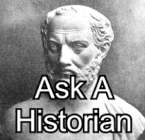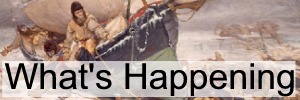|
|
|||||||||
New France | 7 Years War | 13 Colonies | 1812 | Rebellions | South Africa | World War I | World War II | Korea | Modern Wars | Peace Keepers | Medals
Storm Clouds | Mobilization | Fall of France | Battle of Britain | Training | Pacific War | Hong Kong | Conscription | Dieppe | Spartan | Battle of the Atlantic | Sicily | Italy | Overlord | Falaise | Occupation | France 44 | Holland | Germany 45 | VE | VJ
|
France had suffered and been bled white during the First World War. Her spirit and her innovative military tradition had falter between the wars. The will to resist crumbled quickly in May of 1940 when the German Panzers broke through the allied front at Sedan and raced west to the English channel. With the encirclement of British and French forces in Belgium, and the renewed attacks on the remaining French armies to the south, the French Government appealed to the hero of the First World War, Marshall Petain to come to the rescue once again. He was old and declared only an Armistice, which was French surrender would save anything for France. Hitler had his victory over France and quickly moved to consolidate the German position in France in anticipation of either peace talks with the British or an invasion of the Island. |
|
|||||
|
|
||||||
|
Petain set up what was know as the Vichy Government which continued to govern a "Free" section of southern France and cooperate with the German occupation forces in the rest of France. Some Frenchmen such as General Charles DeGaulle continued the fight and with British and after Dec. 1941 American support, began to build a French army of liberation, which would land in Normandy in 1944. |
||||||
|
As it became clear that the war was not going to end soon, two views in France developed in dealing with the German occupation. One was to live and let live. Some French girls began to see, marry and have a family with some of the German occupation soldiers. At first, these people felt that it was only a matter of time before Germany won the war and asked why shouldn't France work with the Nazis for their common good. German propaganda such as the poster top the right played on the feelings generated by British attacks on French ships which could not be allow to fall into German hands - they were sunk. The other line of thought which took hold in many people in France was resistance. Whether it was being uncooperative with German authorities or blowing up bridges, German installations and fighting back in any and every way possible, this was the genesis of French liberation. The Nazi regime, by nature, was oppressive , brutal and violent. The "Final Solution" the murder of Jews, Slavs and other ethnic groups throughout Europe, in concentration camps was well under way by 1942 and the French reaction to these measures was also resistance - passive and violent. |
|
|||||
 |
The French resistance slowly grew and became more active. Working on it's own and with Allied help, it was instrumental in preparing for the D-Day landings. Important defensive information was smuggled out of occupied France, planning for sabotage just before and during the d-day landings was undertaken. When capture French resistance fighters were often tortured and almost always executed as in the photo to the left. |
|||||
|
The Final solution took over 83,000 French Jews, minority groups, political dissidents, and so called "Enemies of the State" from France and to the concentration camps were they were executed by gassing, firing squads, or one of many other cruel and unusual methods. Many French soldiers were still held in prisoner of war camps and as the situation became more desperate for Hitler's Nazis, the measure of repression in France became more extreme. By the time the d-day landings occurred on June 6, 1944, France was ready to rise up and throw the German occupiers off their backs. Signals were sent out by radio for French resistance fighters to prepare for the imminent invasion and be prepared to carry out military operations which would help cut off the Normandy Peninsula from the rest of France and help the allies successfully land. France held it's breath and waited for the sun to rise. |
|
|||||












